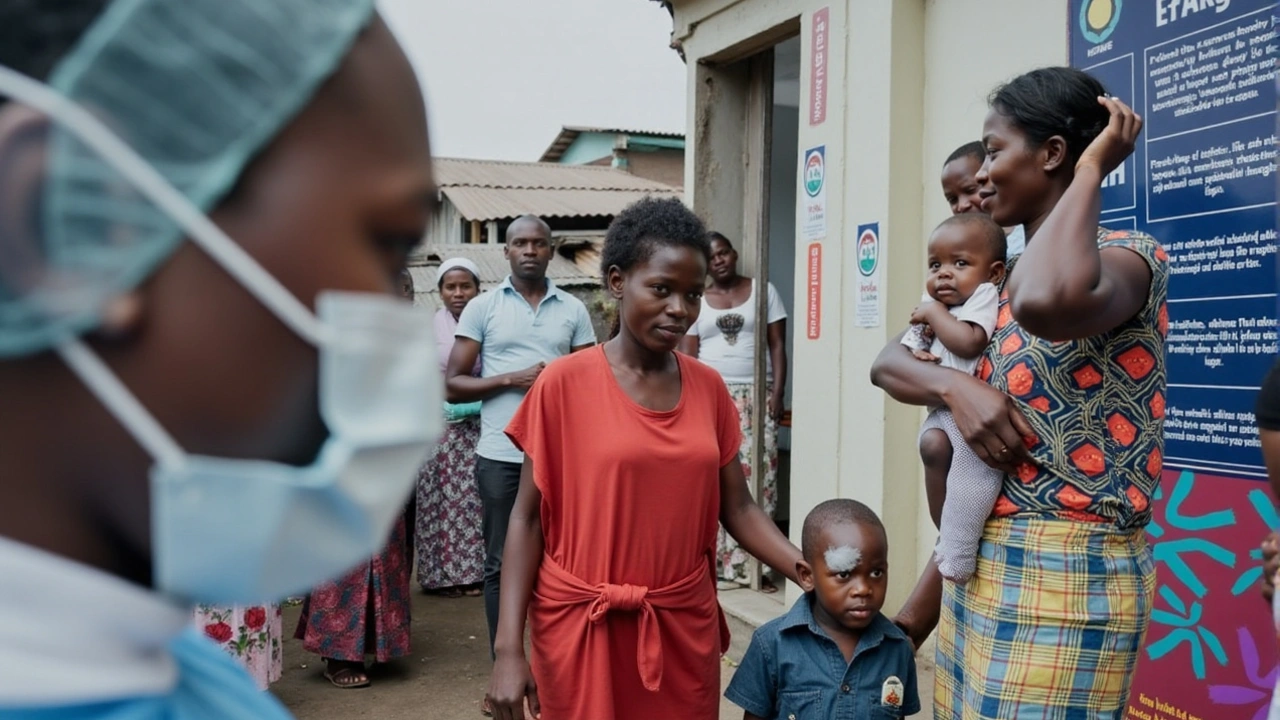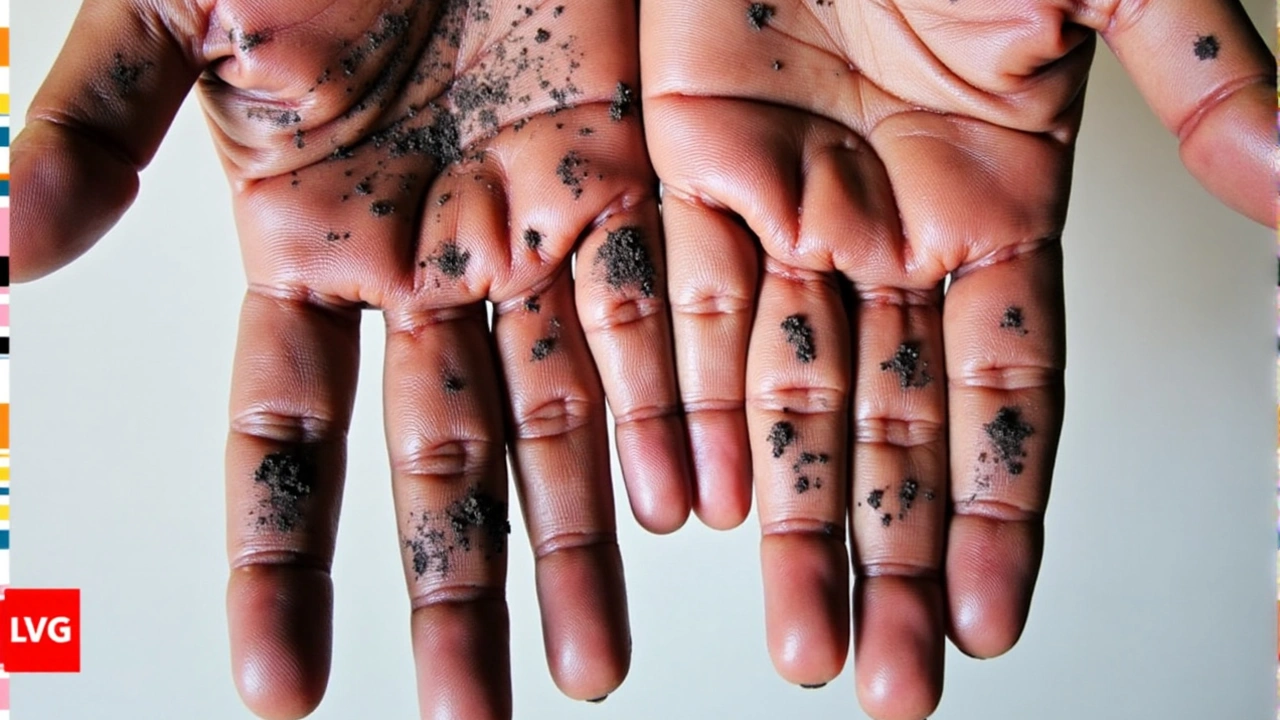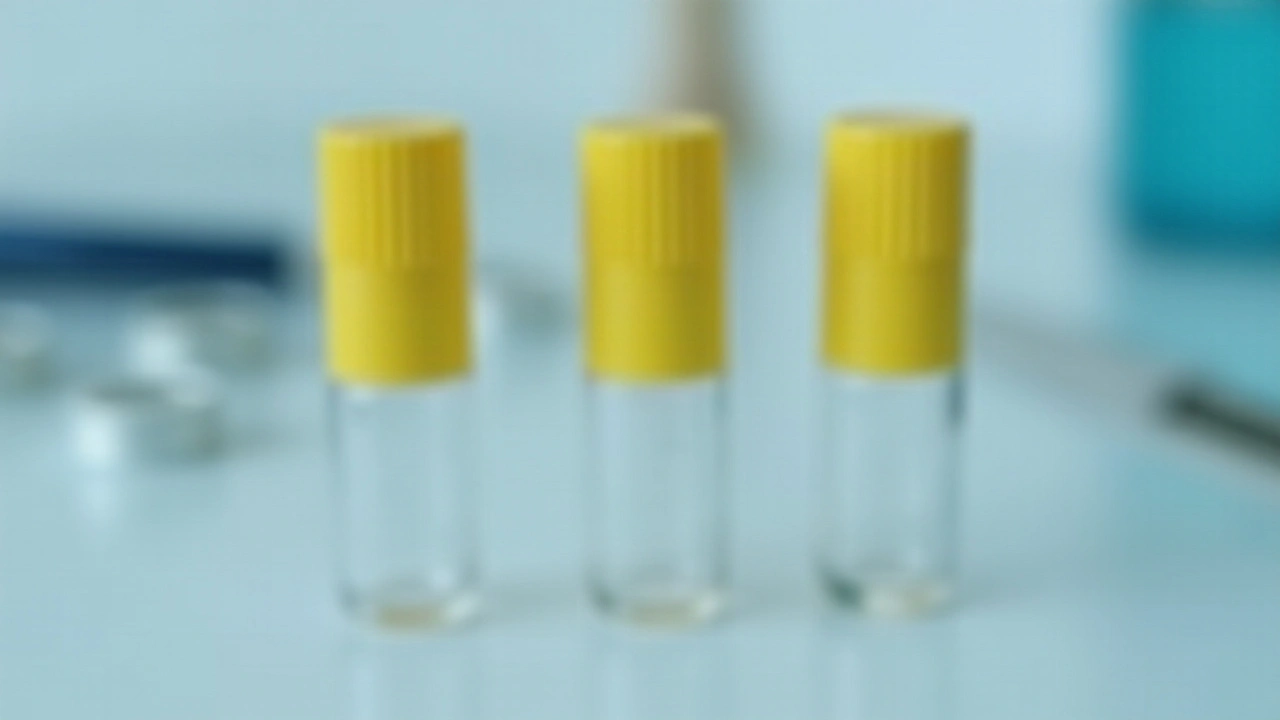The Threat of Mpox
The World Health Organization (WHO) has raised the alarm regarding the ongoing outbreaks of mpox, also known as monkeypox, particularly in the Democratic Republic of Congo and other parts of Africa. By declaring this a global health emergency, the WHO is urging for immediate and significant efforts to curb the spread of this virus. Mpox may not be as contagious as airborne viruses like COVID-19, but its capacity to spread through close skin-to-skin contact or contact with contaminated clothing or bedding makes it dangerous nonetheless.
A Unique Mode of Transmission
Unlike COVID-19, which can spread rapidly through the air, mpox transmission depends heavily on direct, often intimate contact. This includes touching the skin lesions of an infected person, which are often pronounced and visible, or coming into contact with items such as clothes or bedsheets that someone with the virus has used. Due to the nature of its transmission, mpox spreads at a much slower rate compared to viruses that are airborne. Though this nature of transmission does provide some advantage in controlling the spread, it doesn't eliminate the urgency needed to prevent it from escalating further, especially in vulnerable populations.

Current Impact in Africa
Africa, particularly the Congo, is experiencing significant challenges due to this outbreak. The current outbreak has primarily affected children under the age of 15, with these young patients constituting over 70% of the reported cases and an alarming 85% of the deaths in the Congo. The already strained health system in this region, burdened with issues like malnutrition, measles, and cholera, is facing even more pressure due to the rise in mpox cases.
Vaccination and Treatment Gaps
One of the key hurdles in battling the mpox outbreak in Africa is the inadequate access to vaccines and treatments. While wealthier nations were able to manage the 2022 outbreak effectively through widespread vaccination and treatment protocols, African nations lag significantly in this aspect. There is an urgent need to mobilize resources to these regions to bridge the gap.
The WHO's Call to Action
To address the growing emergency, the WHO's declaration serves as a call to action for the international community. The aim is to mobilize vaccines, enhance diagnostic testing, and implement effective treatment protocols to stop the spread of mpox. Health experts, including Dr. Chris Beyrer, emphasize that the tools to combat mpox are available, but prioritizing the efforts in Africa is crucial.
A Contained Yet Persistent Threat
With nearly 100,000 infections and about 200 deaths reported globally, mpox remains a significant concern. However, the slow spread of this virus compared to other pandemics means that the risk to the general population in countries without ongoing outbreaks remains low. Despite the low risk to other regions, the situation in Africa, particularly among young children, continues to deteriorate and requires immediate intervention.
The WHO's declaration aims to rekindle global attention to this issue and ensure that the most affected regions receive the necessary support and resources. Without proper intervention, the virus poses a persistent threat, particularly to vulnerable demographics in Africa.

The Path Forward
Efforts to curb mpox must be accelerated, with a focus on improving access to vaccines and treatments in Africa. This includes ramping up production, facilitating distribution channels, and ensuring that diagnostic tools are readily available to quickly identify and isolate cases. Educational campaigns can play a vital role in informing the public about the importance of vaccination and precautionary measures to prevent the spread of the virus.
The Role of International Collaboration
Combating mpox on a global scale requires concerted efforts and collaboration among nations. Wealthier countries should extend their support towards affected regions by providing financial aid, medical supplies, and technical expertise. Such collaboration is essential not only to address the immediate crisis but also to build resilient health systems that can withstand future outbreaks.
Conclusion
The declaration of mpox as a global health emergency by the WHO underscores the seriousness of the current outbreak and the need for urgent action. While the slow spread of the virus offers some advantage in containment, the impact on vulnerable populations, particularly in Africa, cannot be ignored. Prioritizing vaccination, treatment access, and international collaboration are key steps toward mitigating this health crisis and preventing future outbreaks.



Orlaith Ryan
August 19, 2024 AT 02:13Let’s keep showing up.
Mark Archuleta
August 19, 2024 AT 15:25Pete Thompson
August 21, 2024 AT 08:37Richard Berry
August 23, 2024 AT 05:36Sandy Everett
August 23, 2024 AT 10:56Let’s remember who we’re fighting for.
J Mavrikos
August 23, 2024 AT 19:00Stuart Sandman
August 24, 2024 AT 21:37DJ Paterson
August 25, 2024 AT 10:52That’s not biology. That’s choice.
Nikhil nilkhan
August 25, 2024 AT 19:20Damini Nichinnamettlu
August 27, 2024 AT 17:20Vinod Pillai
August 28, 2024 AT 23:43Avantika Dandapani
August 30, 2024 AT 10:48We owe them more than hashtags.
Ayushi Dongre
August 31, 2024 AT 19:27It is not sufficient to act when the crisis becomes fashionable; it is imperative to act when it is silent.